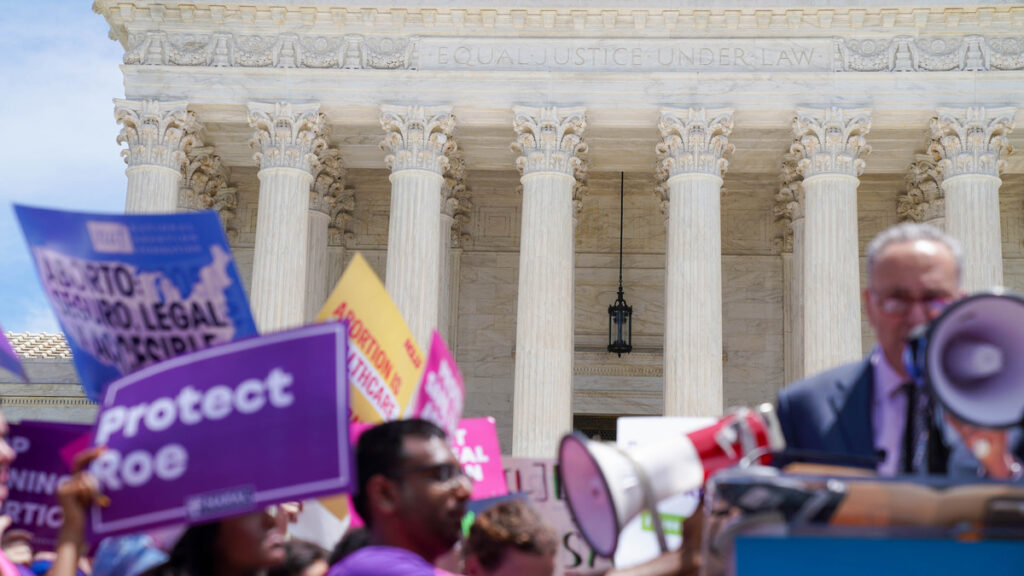On May 2, 2022, an official draft of a U.S. Supreme Court opinion that would overturn Roe v. Wade was leaked on the Internet, raising justified concerns over the future of reproductive and civil rights in the United States and the impact on the United States’ role as a leader in the international community.
The results of the 1970 Roe v. Wade ruling protect an individual’s right to choose whether or not they have an abortion — without any state regulation in the first trimester. The restrictions placed on the second and third trimesters are up to state laws and discrepancies.
The leaked first draft of the opinion to overturn the case is dated Feb.10, 2022, written by Justice Samuel Alito and states that “it is time to heed the Constitution and return the issue of abortion to the people’s elected representatives.” This seriously jeopardizes the health and well-being of all potential child-bearers in the United States.
This profoundly conservative draft is somewhat ironic, as a key component of the GOP campaign is the right to freedom. Yet, the freedom of thousands of people is threatened by this potential overturning.
Almost 50% of abortions globally are performed unsafely, with 97% of these unsafe abortions conducted in developing countries. If the United States bans abortions, it will face an inevitable increase in unsafe abortions and further endanger the lives of its citizens.
More restrictive abortion laws proportionately increase unsafe abortions. Banning abortions does not prevent abortions. It prevents safe and clean abortions. According to reports by the Guttmacher Institute, countries with abortion bans see that 37 per 1,000 potential women still have abortions, whereas the rate in countries without restrictions is only 34 per 1,000.
Twenty-two states have pre and post-Roe abortion bans that would go into effect immediately if a decision were to be made ruling the original case unconstitutional. Many of these restrictive laws will also encourage the dissolution of protections that allow for cross-state travel for receiving an abortion. According to Census and Guttmacher data, a 2017 report found that 8% of individuals left their state of residence seeking an abortion. Following several state by state cases, 74% left Wyoming, 57% left South Carolina and 56% left Missouri. The same report also found that the more restrictive the state’s laws, the greater the percentage is of people traveling to seek an abortion.
People of color and minorities, including immigrants, face greater danger from restrictive bans. Looking at the state of Georgia, white people make up 57% of the population, yet only 22% of abortions. Black individuals in the United States are more than three times as likely to receive an abortion as white individuals. The necessary healthcare and services for these individuals will decrease dramatically, and the states that continue providing abortions will see an unmanageable increase of patients traveling throughout the country.
In an attempt to protect against a situation like the reality we are now facing, on Feb. 28, 2022, the Senate voted on the proposed Women’s Health Protection Act (WHPA), which would federally ensure the right to an abortion; however, it expectedly failed to receive the 60 votes needed to pass, as the democratic seats plus Vice President Kamala Harris only make up 51 votes. Civil and reproductive rights are in serious jeopardy.
As it stands, there are more than 20 countries where abortions are strictly prohibited, and over 50 countries allow for abortions only on the basis of preserving health. As a global superpower, the United States is supposed to set an example for the rest of the international community. Yet, it continues to drop the ball in terms of healthcare. The United States spends roughly $7,300 per person in terms of healthcare, whereas the Netherlands, for example, spends only $4,000 per person yet ranks higher in terms of their health system performance.
With the power the United States possesses, it should be careful about the legislation it passes and its influence on the rest of the international community. European leaders are already speaking out and criticizing the U.S. decision. Member of the Irish Parliament on the nation’s health committee, Roisin Shorthall, said: “We have seen, with the reported imminent overturning of Roe v. Wade in the United States, that rights, once secured, must continue to be fought and advocated for.”
If overturned, the United States will be taking ten steps backward regarding civil and reproductive rights progress. At this moment, the future of the case is up in the air, with action and results expected in June 2022. In the meantime, ways to help include donating to pro-abortion institutions and organizations like Planned Parenthood, the Center for Reproductive Rights and Population Action International.
As thousands of protestors gather in front of the U.S. Supreme Court in Washington D.C. and other parts of the country, it is clear that Americans will not be silenced in the face of this development. In the words of Seattle City Councilwoman Kshama Sawant, “We are facing the single biggest attack on women and reproductive rights in most of our lifetimes.” Now more than ever, Americans are calling on the court system and their legislators to stop their attacks on abortion and protect fundamental human rights.







